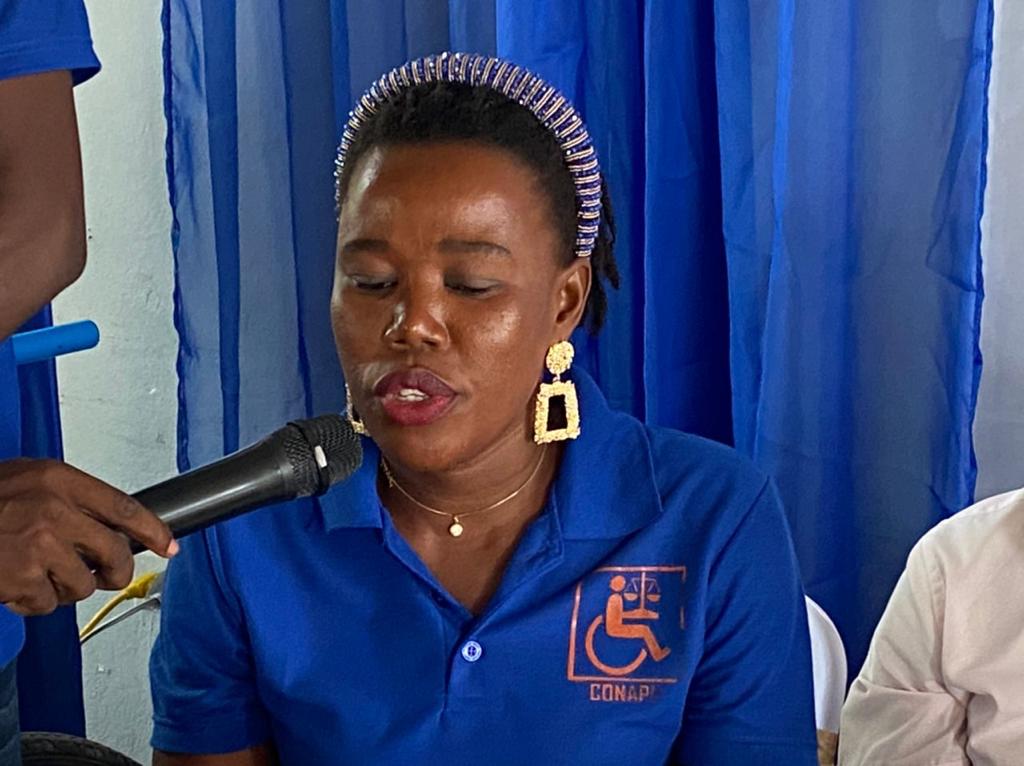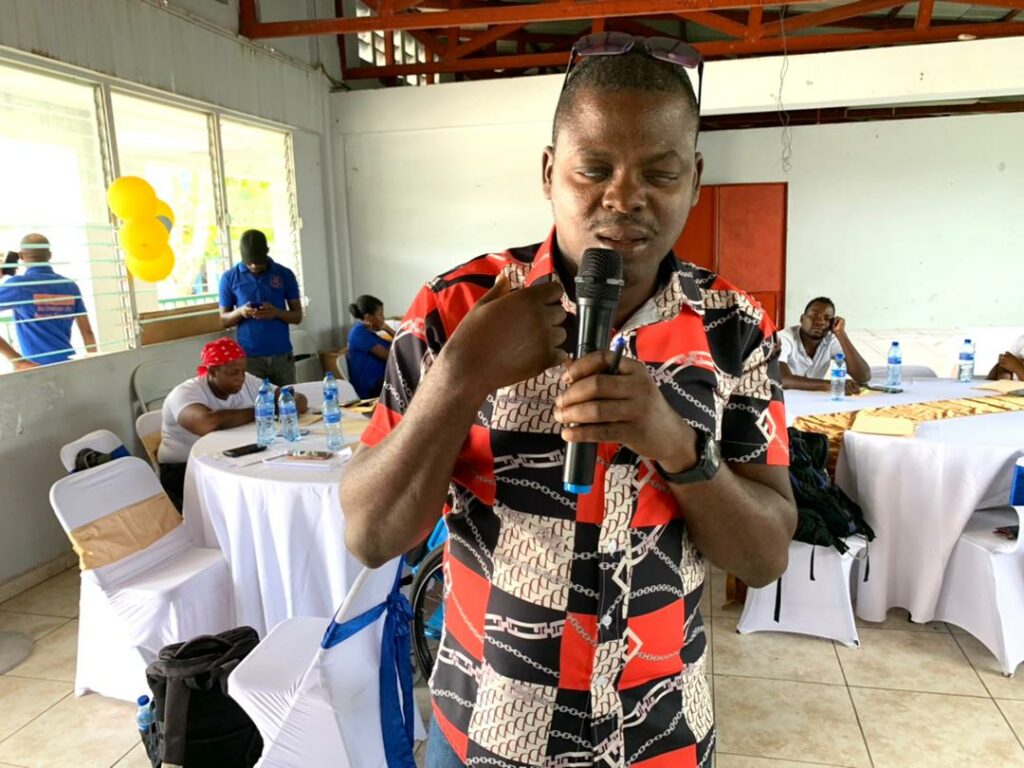Blog
It’s Time to Recognize the Leadership of Persons with Disabilities for Inclusive Humanitarian Response
Blog by Jo-Ann Garnier, DRF/DRAF’s Program Officer for Haiti

In Haiti, persons with disabilities face enormous challenges during humanitarian crises. Disabled people are often viewed as victims and are excluded and face discrimination. They are often not consulted on all or any phases of disaster risk management.
Humanitarian crises in Haiti are a result of various factors: natural disasters, political and social unrests, and sometimes we experience both at the same time. These multiple crises create massive internal migrations and impoverish the population, with 80% already living under $ 2 USD a day. In August 2021, a magnitude 7.2 earthquake struck Haiti’s Southern department leaving hundreds of thousands in need of assistance. This was followed by Tropical Storm Grace, which left many without reliable shelter. Six out of 15 DRF/DRAF grantees in Haiti are based in the Southern region.
As a grantmaker DRF/DRAF are attentive to the needs and solutions of our grantees, developing over the years extensive experience to adapt to the changing environment in challenging situations around the world. In Haiti, we approached political unrest, lockdowns, and health emergencies, like COVID 19, by trusting the outreach of our grantees prioritizing a humanitarian emergency that was unfolding. Although the situation was tough on the field, grantees with DRF/DRAF’s support managed to maintain their operations and made their voices heard using social media.
On May 11, 2022, CONAPH (Coalition Nationale des Associations de Personnes Handicapées), based in the South, organized a forum called the “Inclusion of Persons with Disabilities in Humanitarian Settings.” I was thrilled to participate in the planning of this forum with CONAPH and was excited to go back to the field after being forced to limit my travels due to the increased cases of kidnappings and growing insecurity on the road. Unfortunately, once again due to the security context prevailing in Port-au-Prince at the last minute, I had to change my travel plans and participate remotely because of the kidnapping of a dear friend.

The main goal of the forum was to advocate decision-makers to include persons with disabilities in all the phases of disaster-risk and emergency management. I enjoyed participating in this forum even though I was nearly 200 kilometers away. In the face of these challenging circumstances, technology is a great tool for connecting activists so we can strategize remotely. CONAPH took the opportunity to educate humanitarian actors on the rights of persons with disabilities and disseminated different instruments upholding these rights in humanitarian settings. Persons with disabilities also shared their experiences with local authorities and humanitarian actors.
DRF/DRAF operate in challenging and, sometimes, dangerous environments. I know that some donors may want to withdraw, because they want tangible results, which are hard to measure. I also know grantees are doing their best because for them it is not only a matter of being accountable to DRF/DRAF, but it is also about their daily lived realities and securing a just and inclusive future for the next generation of persons with disabilities. Change takes time, and we should celebrate small and major wins. My biggest takeaway from working with our grantees during intersecting crises is this: Listen to the long-term solutions of organizations of persons with disabilities and trust their leadership.